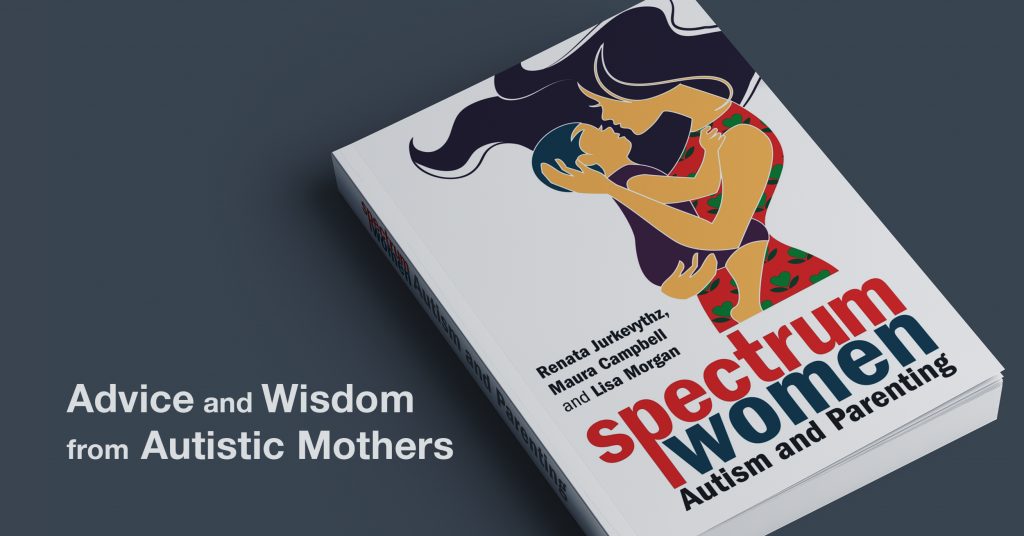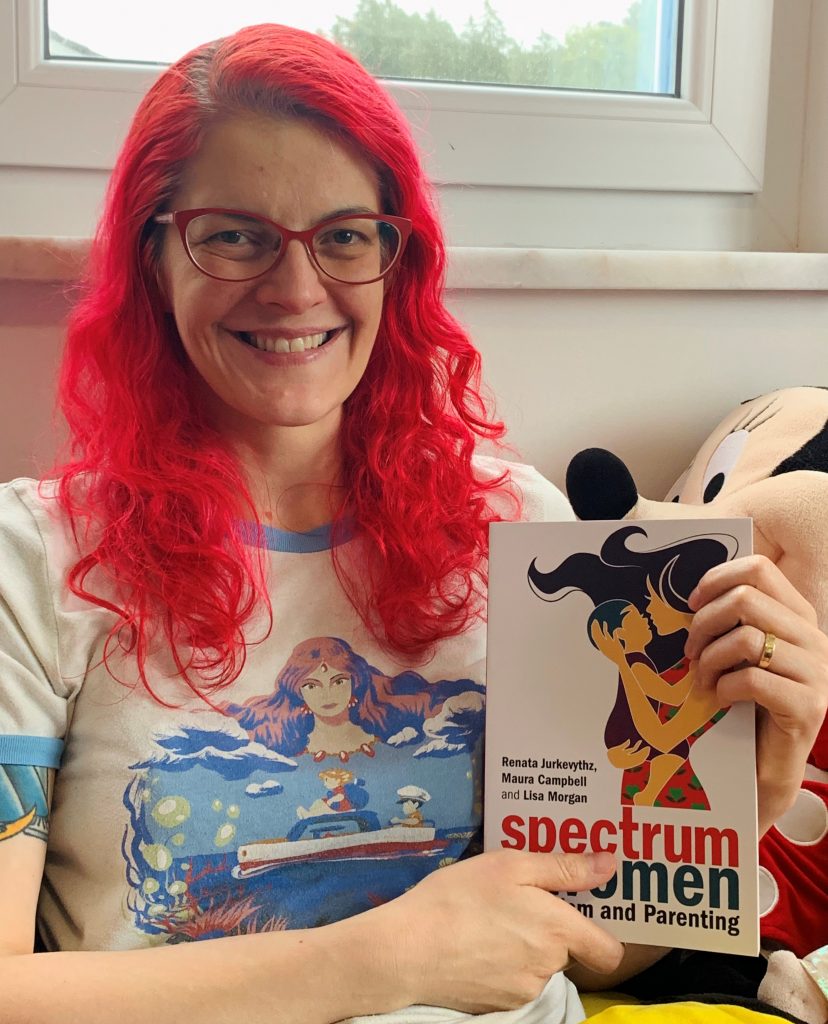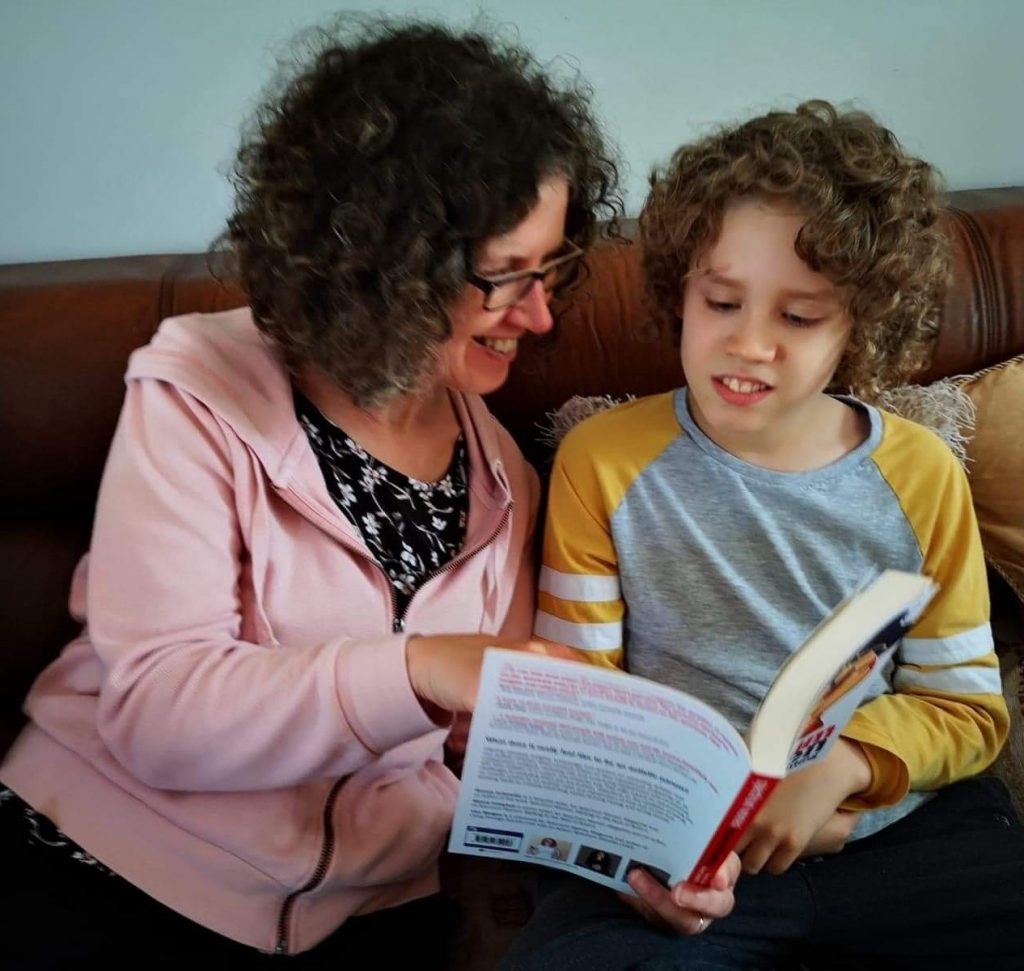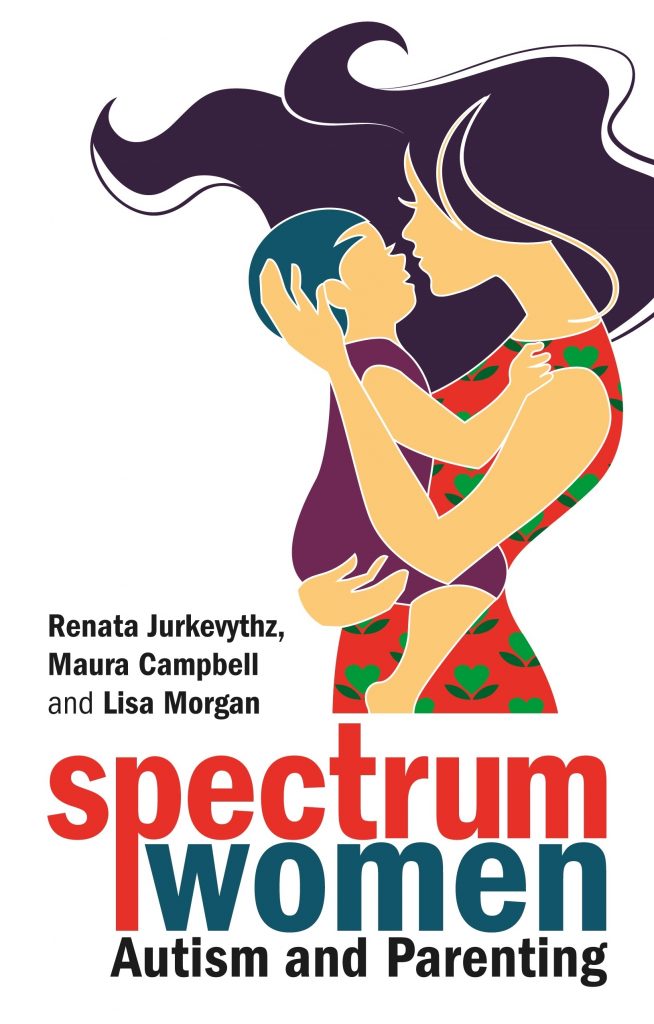
We asked the book’s three authors about their experiences of co-writing Spectrum Women – Autism and Parenting. Renata Jurkevythz, Maura Campbell and Lisa Morgan chatted about the information available to them when they became mothers, and the advice they would like to pass on.
Q: Who’s the book for, and what do you hope readers will get from it?
A: This book is for all parents of autistic children. It might also be a good resource for autistics who are thinking about becoming parents. Our goal with this book is to provide advice for autistic parents from a point of view that is familiar to them, while showing a new perspective and providing unique advice for parents of autistic children who are not on the spectrum themselves.
Q: Can you tell us a little bit about the process of writing the book, and how it worked having three authors?
A: The book came about when I (Renata) approached Maura about how I wished there was more help for autistic kids from an autistic perspective, and the need for us to be better understood and represented as autistic mothers… so we decided to go ahead and do it ourselves! Then we invited our friend Lisa to join us, and started writing. Having three authors was never a problem for us – quite the contrary. Since we are good friends, the process was really smooth. We were working as a real team, in a way I always pictured team work, but never experienced in my days as a corporate employee. The only time I felt such a strong “team feeling” was when we were writing the first Spectrum Women book!

Q: When you became mothers, what kind of advice and information was available to you? What was missing?
A: We found most parenting information was focused on physical health and developmental milestones, and usually followed the principle that “you don’t follow the norm, so you are broken and we must fix you”. We had to work hard to find proper support, both for our autistic children and for ourselves as autistic parents.
Q: How is being an autistic parent different from being a neurotypical one?
A: Our neurology makes us see and feel the world in different ways, so that will naturally affect how we parent as well. It can vary from sensory sensibilities to the logic we apply when interpreting parenting challenges.
Q: Is there advice in this book for NT parents of ND children as well?
A: Absolutely! I dare say non-autistic parents can take even more from the parts of the book where we discuss parenting an autistic child. We offer an autistic point of view of the challenges our children face, which you cannot get from a non-autistic author. Being autistic ourselves, we immediately understand some of the ways our children act that non-autistics find impossible to comprehend and often misinterpret.

Q: What’s the most difficult thing about parenting while autistic, for you?
A: From my personal experience as an autistic mother, the main challenges relate to my senses, especially when they clash with my kids (sensory-avoiding meets sensory-seeking in many cases) and emotional regulation, like being able to control my emotions while managing conflict and my tendency to worry too much. I am also conscious that society tends either to see us as uncapable or, if they recognize us as capable mothers, they usually doubt our diagnosis, which leaves us lacking proper support.
Q: What’s the best thing about it?
A: Having a different, unique way of seeing things. Perceiving the world around us from our senses and logic, rather than simply following social rules without questioning if they are true or fair. We do not judge others as more or less worthy based on predetermined standards. The deep connection we have with our kids. We are different together, and we make sense to each other.
Q: You’re all contributors to the brilliant book Spectrum Women: Walking to the Beat of Autism as well. Why did you think the follow-up to that book should be about parenting specifically?
A: It actually happened the other way around – we first decided to write a book about parenting, and then figured it would make sense to put it under the Spectrum Women umbrella. Barb Cook’s had already had the idea of a series of follow-up books, so when we approached her with our idea she agreed right away. It made perfect sense since we were all part of the first book and all write for Spectrum Women Magazine.

Q: What advice would you give to an autistic person who’s thinking about becoming a mother or father in the future, but feels nervous about how they will cope?
A: Parenting is challenging for every individual, regardless of their neurology. Don’t think you are less capable just because you are autistic; you just have a different set of challenges and things to consider when making that decision.
For every single person who wants to become a parent, I would advise you to try and picture what kind of life you want in your future. Consider the fact that kids are a lifetime responsibility and they may bring many challenges, but also will teach you a lot and show you a kind of love you won’t find anywhere else. It is a person’s right to decide whether or not to have kids, it is just important that you make the decision based on what you want, and not what is expected of you, be it from society or your family.
Q: Where can people find out more about you and your writing?
A: You can find out more about us and see our previous articles in Spectrum Women Magazine which is a free online magazine by and for autistic women. Lisa can also be contacted through the website www.autismcrisissupport.com or her email lisamorganconsulting@gmail.com.

You can learn more and get your copy of Spectrum Women – Autism and Parenting, here.
If you would like to read more articles like this and get the latest news and offers on our books about autism, why not join our mailing list? We can send information by email or post as you prefer. You may also be interested in liking our Autism, Asperger’s and related conditions Facebook page.